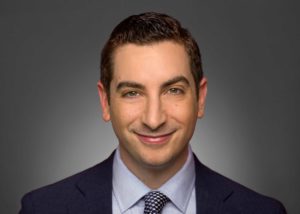RPJ’s Ethan Krasnoo Discusses New Pro Bono Sexual Harassment Mediation Program for Artists
As the rate of sexual harassment claims in the entertainment industry continues at a breakneck pace, artists gained a new avenue last week for resolving disputes surrounding such claims. The HR4A Mediation Pilot Program opened its doors on January 16, 2018, and offers a free and confidential mediation program platform for alleged victims and perpetrators of sexual harassment to reach a resolution or settlement in connection with allegations of sexual harassment. The program was established by civil rights and liberties lawyer Norman Siegel, who formerly served as the Executive Director of the New York Civil Liberties Union, and actress Marin Ireland, known for her work on Broadway and in film and television.
I recently spoke with Mr. Siegel to learn more about the HR4A Program. He indicated that the Program, currently in a six-month trial stage, is free to those who qualify, and that mediators, lawyers and trained administrative volunteers are all providing pro bono support at this time. Potential resolutions spawned by the mediations under the Program can range from an apology or promise by an alleged harasser regarding future behavior to counseling or financial settlements.
While originally envisioned for theater professionals, according to Mr. Siegel, the Program is now more expansive and open to artists of any kind, including for example, actors, writers and painters. The Program may also include non-artists to the extent that an artist has claims against such an individual. While participation is voluntary, the decision to participate in the mediation and selection of a mediator from HR4A’s roster must be agreed to by both the alleger and the accused in order to proceed under the Program’s auspices. The Program is also confidential unless waived by the parties and is expected to provide a highly expedited mediation process compared with other forms of dispute resolution.
Aside from the potential of obtaining a swift result, which is especially advantageous if the parties involved will continue to work together after the allegations have been made, the expedited nature also has the advantage of not closing off other dispute resolution avenues should the mediation prove unsuccessful. For example, if an actress accuses a stagehand of harassment and both voluntarily and expeditiously attend mediation under the Program but fail to reach an agreement, the actress would not have foreclosed her ability to file a claim with the U.S. Equal Employment Opportunity Commission or the New York State Division of Human Rights, or bring a lawsuit before the applicable statute of limitations periods have run. Mr. Siegel stated that mediation under the Program is available only for allegations of non-criminal sexual harassment, and so more traditional avenues of dispute resolution and/or criminal proceedings may be necessary as an alternative, depending on the nature of the facts and allegations.
HRfortheArts.org provides more details on the HR4A Mediation Pilot Program.
RPJ Partner Alice K. Jump mentioned possible creative solutions like the HR4A Pilot Program as options to mitigate the issue of mediations and settlements’ high cost in her recent article, “The Harassment Debate: A View from the Legal Trenches.” Read her article here.

This article is intended only as a general discussion of these issues. It is not considered to be legal advice or relied upon. For more information, please contact RPJ Associate Ethan Krasnoo, who counsels clients on employment (including discrimination, sexual harassment, and contractual), entertainment and media, First Amendment and data privacy matters. Mr. Krasnoo is admitted to practice in New York State, the U.S. District Courts for the Southern and Eastern Districts of New York, the U.S. Court of Appeals for the Second Circuit, and U.S. Tax Court.
